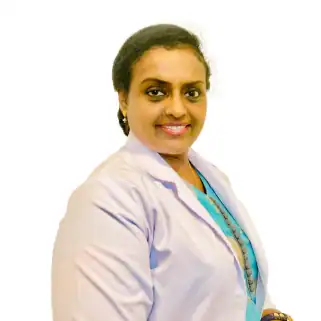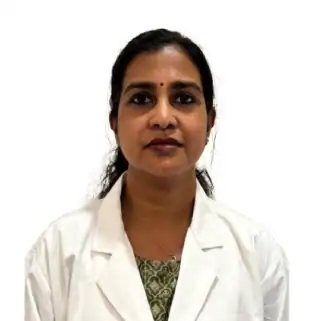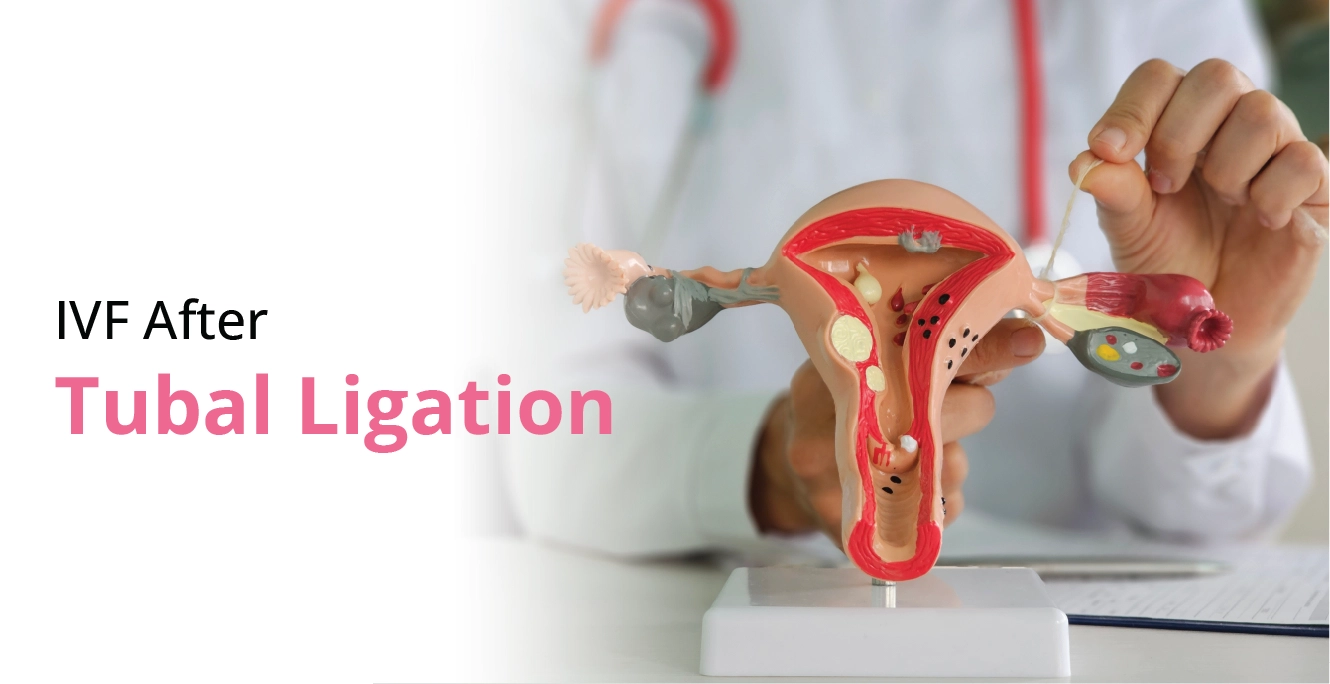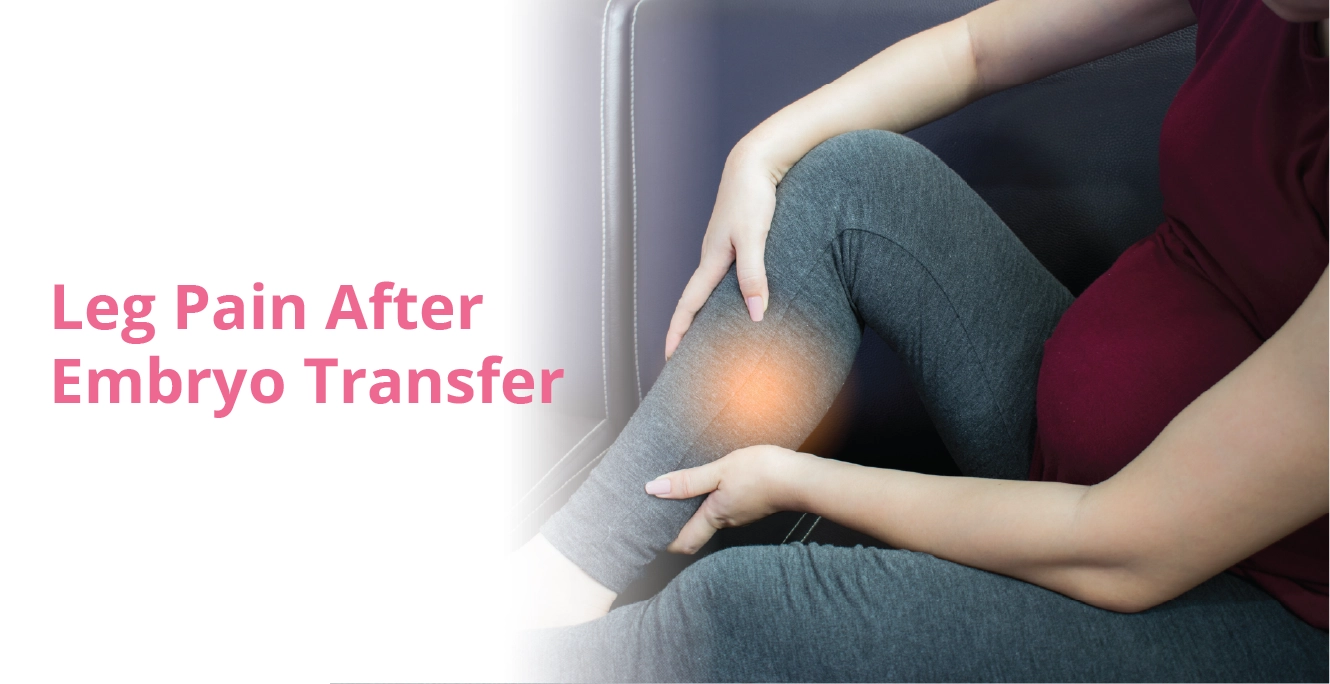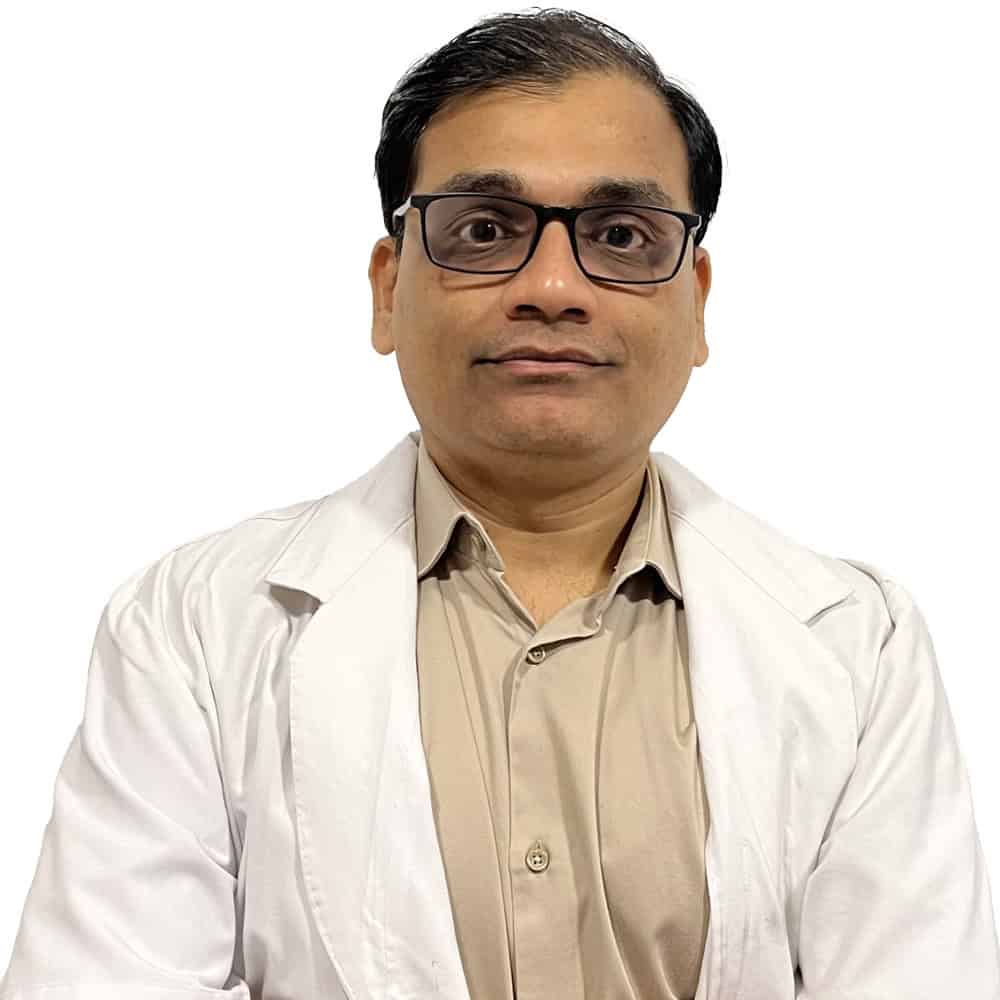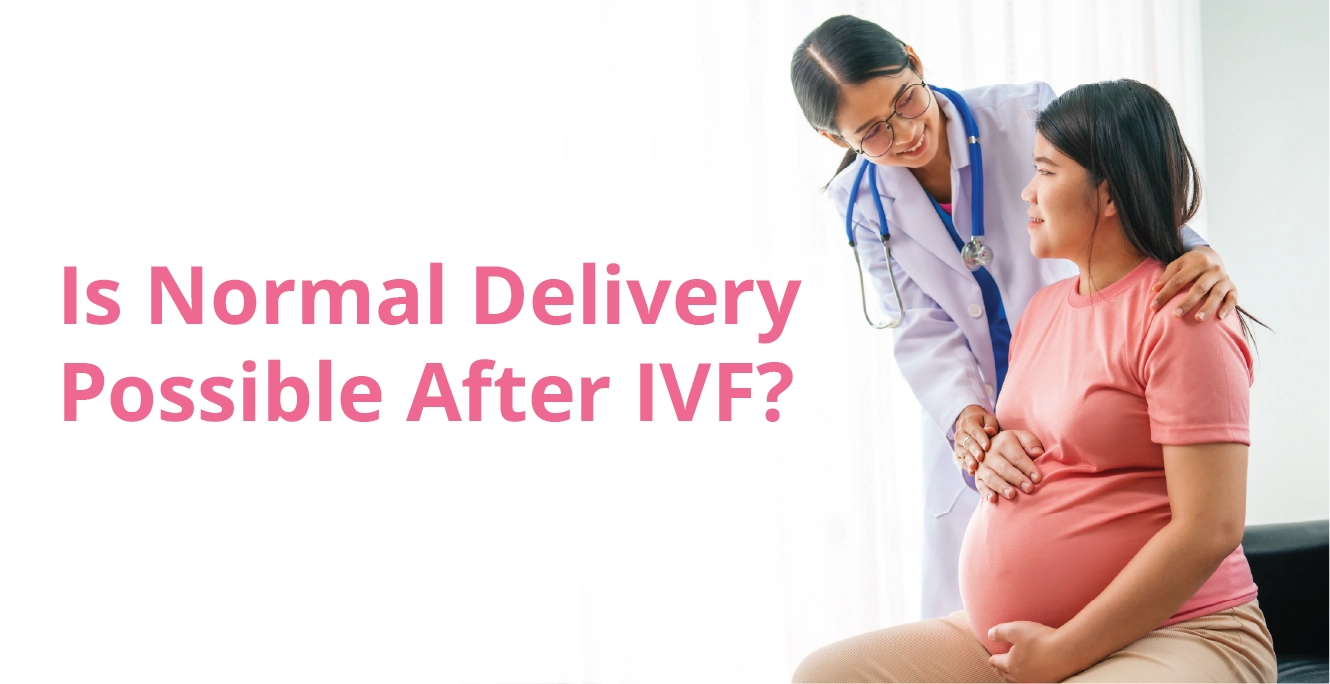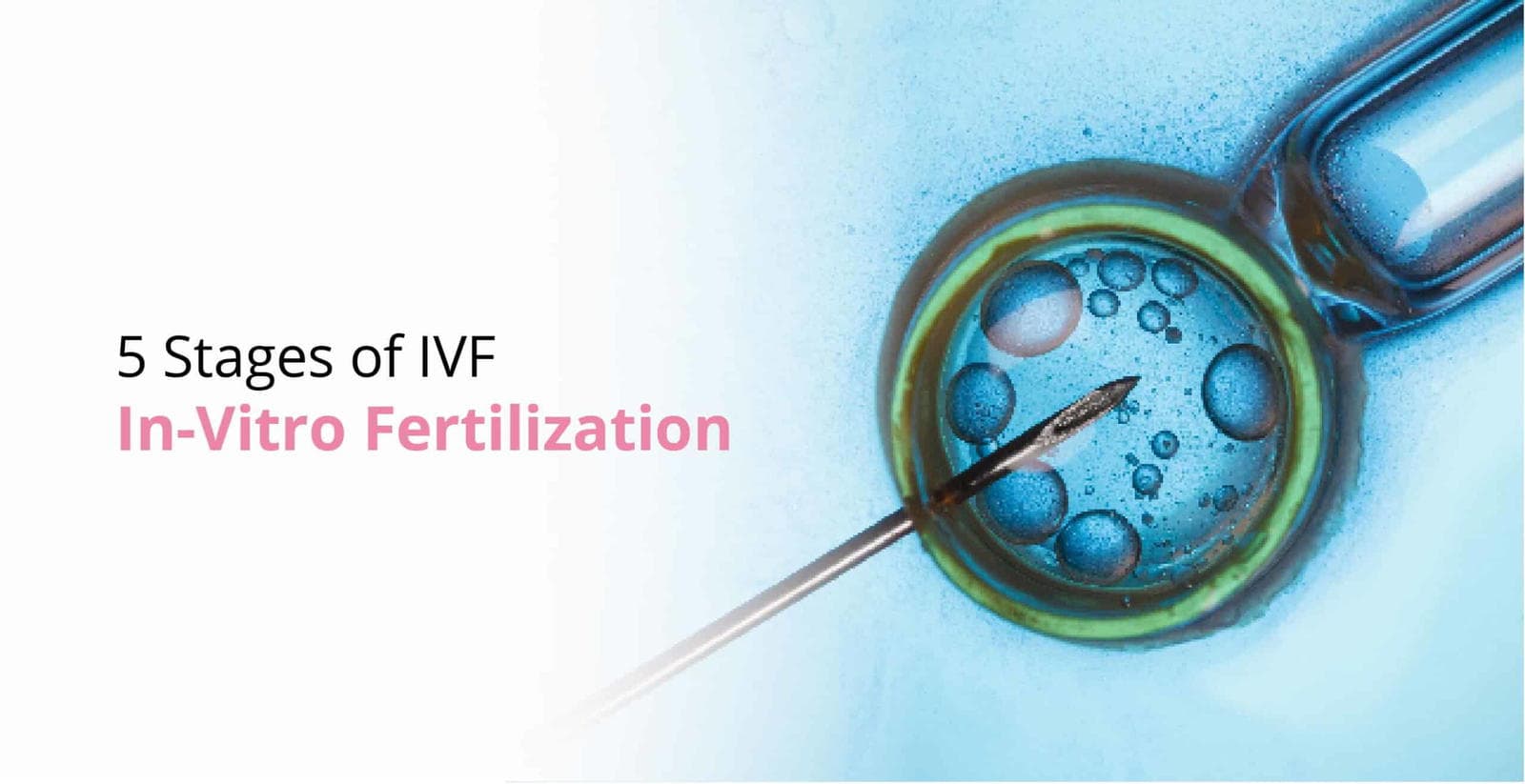
What are the 5 Different Stages of IVF

Table of Contents
Key Takeaways
The five stages of the IVF procedure involve:
- Ovarian stimulation with fertility medications,
- Egg retrieval through a minor surgical procedure,
- Sperm retrieval and fertilisation using conventional insemination or ICSI,
- Embryo culture in the laboratory for 3-5 days, and
- Embryo transfer into the uterus using a thin catheter.
Each stage is crucial for the success of the IVF cycle, and understanding these stages helps individuals prepare physically and emotionally for the process, increasing their chances of achieving a successful pregnancy.
Herein, we’ll walk you through the five stages of IVF, from the initial preparation to the emotional moment of the pregnancy test. We will tell you what happens at each stage, the medications involved, and the procedures you can expect. By the end, you will have a clearer picture of the IVF process and feel more empowered as you embark on this journey.
The 5 Stages of IVF Treatment
Stage 1: Ovarian Stimulation and Monitoring
The first stage of IVF focuses on stimulating the ovaries to produce multiple eggs. This typically involves:
- Suppressing your natural menstrual cycle with medications like birth control pills or gonadotropin-releasing hormone (GnRH) agonists/antagonists.
- Stimulating egg development with injectable hormones called gonadotropins, such as follicle-stimulating hormone (FSH) and luteinising hormone (LH).
- Monitoring follicle growth through regular vaginal ultrasounds and blood tests to measure hormone levels.
During this stage, you will likely feel some bloating, cramping, and discomfort as your ovaries become enlarged. Mood swings and fatigue are also common side effects of the hormonal medications.
Stage 2: Egg Retrieval
Once your follicles have reached the appropriate size, you will receive a ‘trigger shot’ of human chorionic gonadotropin (hCG) to mature the eggs for retrieval. About 36 hours later, you will undergo a minor surgical procedure called egg retrieval.
-
The procedure is usually performed under sedation or anaesthesia
-
A thin needle is guided through the vagina and into each ovary to aspirate the eggs
-
The entire process takes about 20-30 minutes
After the retrieval, you may experience some cramping, spotting, and soreness. These symptoms typically resolve within a few days.
Stage 3: Sperm Collection and Fertilisation
On the same day as the egg retrieval, your partner will provide a semen sample (or donor sperm will be thawed). The sperm is then processed and combined with the eggs in the laboratory. There are two main methods of fertilisation:
-
Conventional insemination: The sperm and eggs are mixed together in a petri dish and left to fertilise naturally
-
Intracytoplasmic sperm injection (ICSI): A single sperm is injected directly into each mature egg
The fertilised eggs, now called embryos, are cultured in the lab for 3-5 days to monitor their development.
Stage 4: Embryo Development and Selection
During the embryo development stage, the embryologist carefully assesses the quality and growth of the embryos. By day 5, embryos should ideally reach the blastocyst stage. The most viable embryo(s) are then selected for transfer based on factors such as:
- Cell number and symmetry
- Fragmentation degree
- Presence of a clear inner cell mass and trophectoderm
Any additional high-quality embryos can be cryopreserved (frozen) for future use.
Stage 5: Embryo Transfer and Luteal Phase Support
The final stage of IVF is embryo transfer, a simple procedure that usually does not require anaesthesia.
- A thin catheter is passed through the cervix and into the uterus
- The selected embryo(s) are gently deposited into the uterine cavity
- You will rest for a short period before going home
After the transfer, you will continue taking progesterone supplements to support the uterine lining and promote the implantation stage. About two weeks later, you will have a pregnancy blood test to determine if the cycle was successful.
Timeline of the Five Stages of IVF
The entire IVF process typically spans 4-6 weeks from the start of ovarian stimulation to the pregnancy test. Here’s a general breakdown of the main stages of IVF:
|
IVF Stage |
Timeframe |
|---|---|
|
Ovarian Stimulation |
10-14 days |
|
Egg Retrieval |
Usually, 36 hours after the trigger shot |
|
Fertilisation and Embryo Development |
3-6 days |
|
Embryo Transfer |
Typically, 5-6 days after retrieval |
|
Pregnancy Test |
Two weeks after embryo transfer |
After the embryo transfer, the most critical waiting period is the two-week wait to determine if the embryo has been implanted and pregnancy has been achieved. This period can be emotionally challenging for couples, as they eagerly await the outcome of their IVF treatment. During this time, it is essential to stay positive and seek support from loved ones or professionals, if needed.
Optimising Lifestyle Choices for Each Stage of IVF
At each stage of IVF, specific lifestyle changes can enhance the chances of success:
Ovulation Induction
- Nutrition: Adopt a balanced diet rich in fruits, vegetables, and lean proteins to support ovarian function.
- Hydration: Maintain adequate hydration to optimise bodily functions.
- Stress management: Engage in relaxation techniques to reduce stress levels.
Egg Retrieval
- Rest: Ensure sufficient rest before the procedure to aid recovery.
- Avoid harmful substances: Refrain from smoking and limit alcohol intake.
Fertilisation and Embryo Culture
-
Medication adherence: Follow prescribed medications strictly.
Embryo Transfer
-
Emotional well-being: Seek support from loved ones and engage in calming activities.
Luteal Phase
- Continued healthy habits: Maintain a nutritious diet, stay hydrated, and manage stress effectively to support implantation
What Happens After the IVF Cycle?
The outcome of your IVF cycle will guide the next steps in your fertility journey:
Positive pregnancy test
If your pregnancy test is positive, congratulations! You’ll continue with prenatal care and monitoring. Your fertility clinic will likely schedule an ultrasound around 6-7 weeks to confirm the pregnancy and check for a heartbeat.
Negative pregnancy test
If the cycle is unsuccessful, it’s normal to feel disappointed. Take time to process your emotions and lean on your support system. When you’re ready, you can discuss the next steps with your fertility team, such as:
- Attempting another IVF cycle with fresh eggs and sperm
- Using frozen embryos from a previous cycle (frozen embryo transfer)
- Exploring other treatment options or alternatives like donor eggs, sperm, or embryos
A negative result does not mean the end of your journey. Many people go through multiple cycles before achieving success.
What are the Success Rates of IVF?
The success of IVF depends on various factors, including:
- Maternal age
- Cause of infertility
- Embryo quality
- Uterine receptivity
- Lifestyle factors
In general, IVF success rates are higher for women under 35 and decrease with advancing age. According to the Indian Society of Assisted Reproduction (ISAR), the live birth rate per embryo transfer in India is:
|
Maternal Age |
Live Birth Rate |
|---|---|
|
< 35 years |
40-50% |
|
35-39 years |
30-40% |
|
≥ 40 years |
20-30% |
It’s important to note that these are average success rates, and individual outcomes can vary. Cumulative success rates (the chances of a live birth after multiple IVF cycles) are often higher than per-cycle rates.
A Word from the Expert:
“The journey through IVF can be challenging, both physically and emotionally. It’s crucial to prioritise self-care and lean on your support system during this time. Remember, every person’s path is unique, and success is not just defined by the outcome of a single cycle. With perseverance and the right medical guidance, many individuals and couples achieve their dream of parenthood through IVF. Don’t hesitate to reach out to your fertility team with any questions or concerns along the way.” ~Dr. Prachi Benara
Our Fertility Specialists
Related Blogs
To know more
Birla Fertility & IVF aims at transforming the future of fertility globally, through outstanding clinical outcomes, research, innovation and compassionate care.
Had an IVF Failure?
Talk to our fertility experts

 Our Centers
Our Centers





